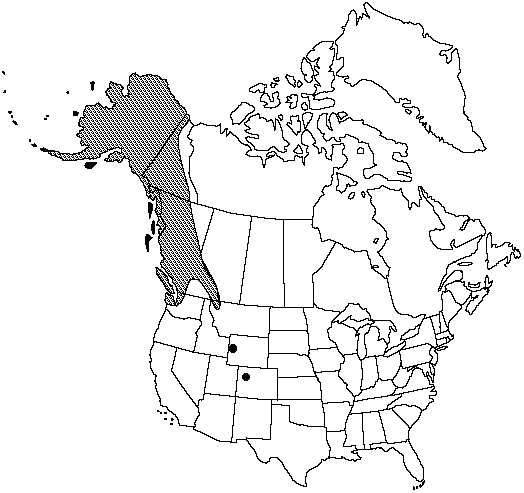Huperzia haleakalae
Folia Geobot. Phytotax. 20: 73. 1985.
Shoots erect, indeterminate, 8–11 cm, short to long-decumbent, 3–8 cm; leaves in mature portion smaller than in juvenile portion; annual constrictions absent; juvenile growth erect. Leaves spreading-ascending to appressed, yellow-green to yellowbrown, greener at stem tip (top 1 cm), lustrous (as if covered with clear yellow varnish); leaves in juvenile portion lanceolate, 4.5–6 (–7) mm, apex acute; leaves in mature portion ovate, 3–4 mm, apex acute; margins entire, with scattered papillae; stomates present on both surfaces, numerous (38–84 per 1/2 leaf) on adaxial surface. Gemmiferous branchlets produced throughout mature portion of shoot; gemmae 3–4 × 3.5 mm, lateral leaves 1.5–2 mm wide, broadly acute to obtuse. Spores 31–41 µm.
Habitat: Terrestrial in exposed, moist meadows and mossy heaths in alpine and subalpine zones
Elevation: (160–)1300–1700(–3600) m
Distribution

Alta., B.C., Yukon, Alaska, Colo., Mont., Wash., Wyo., Asia in Siberia, Pacific Islands (Hawaii)
Discussion
Huperzia haleakalae has been found in Hawaii in Haleakala Crater, on Maui, at 2300 meters, but it is extremely rare or possibly extinct there.
Selected References
None.